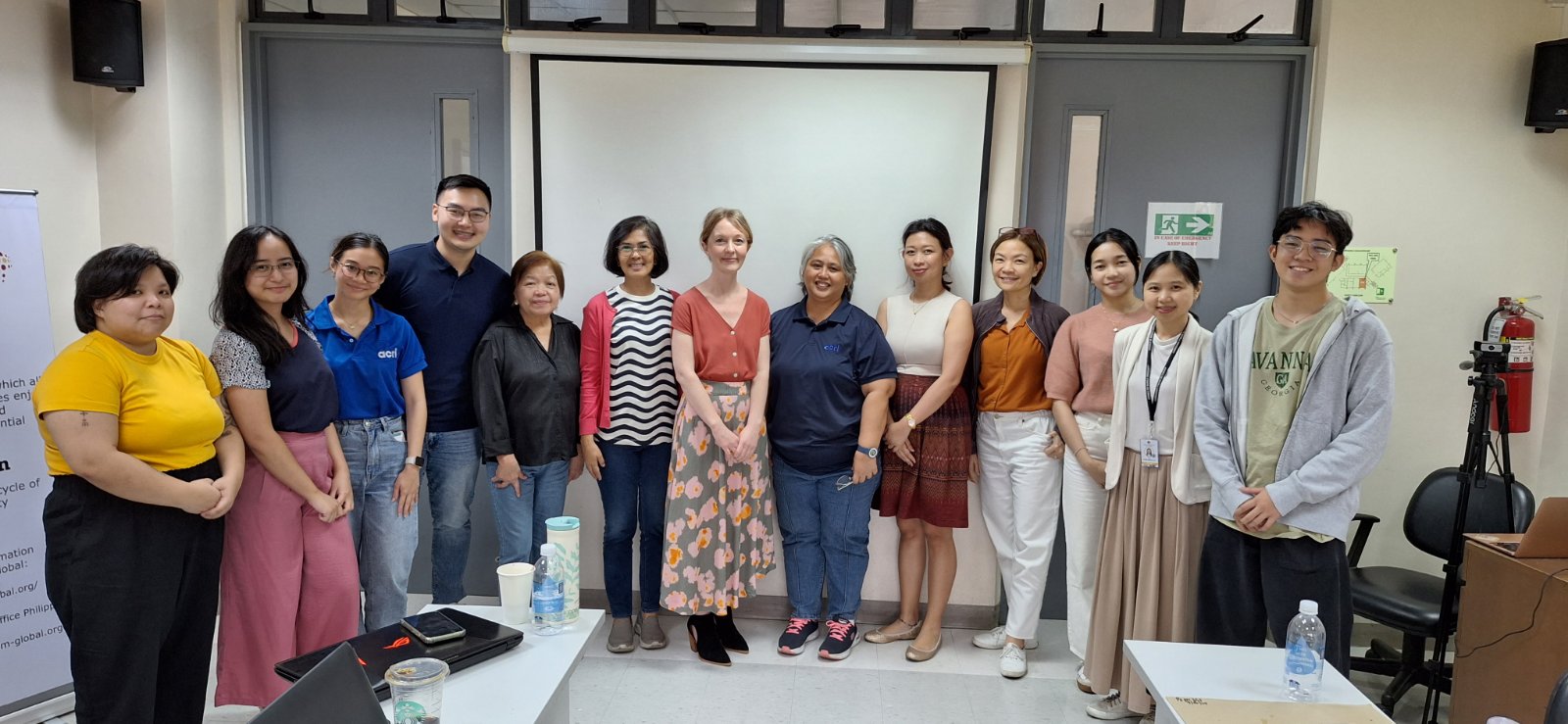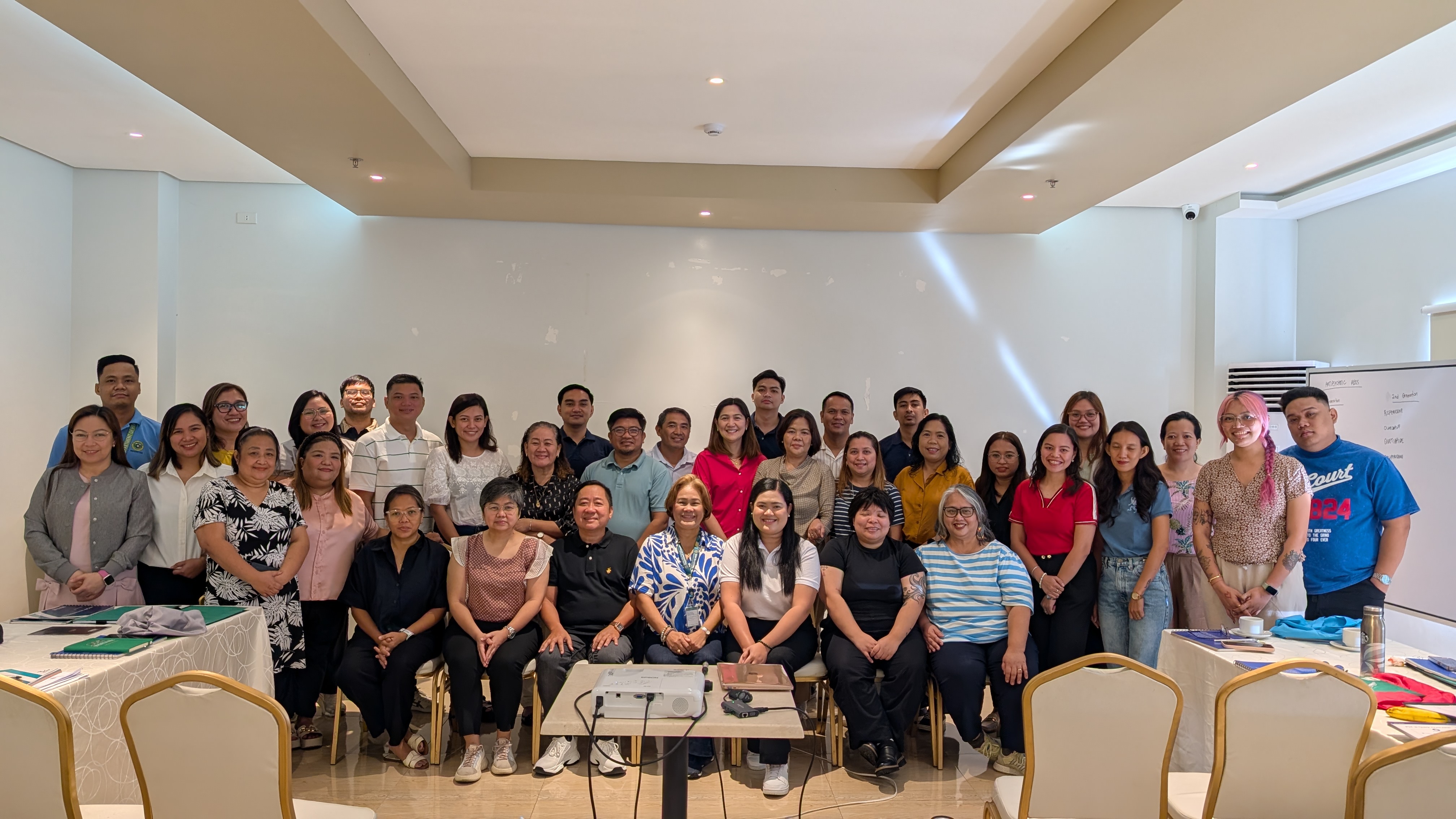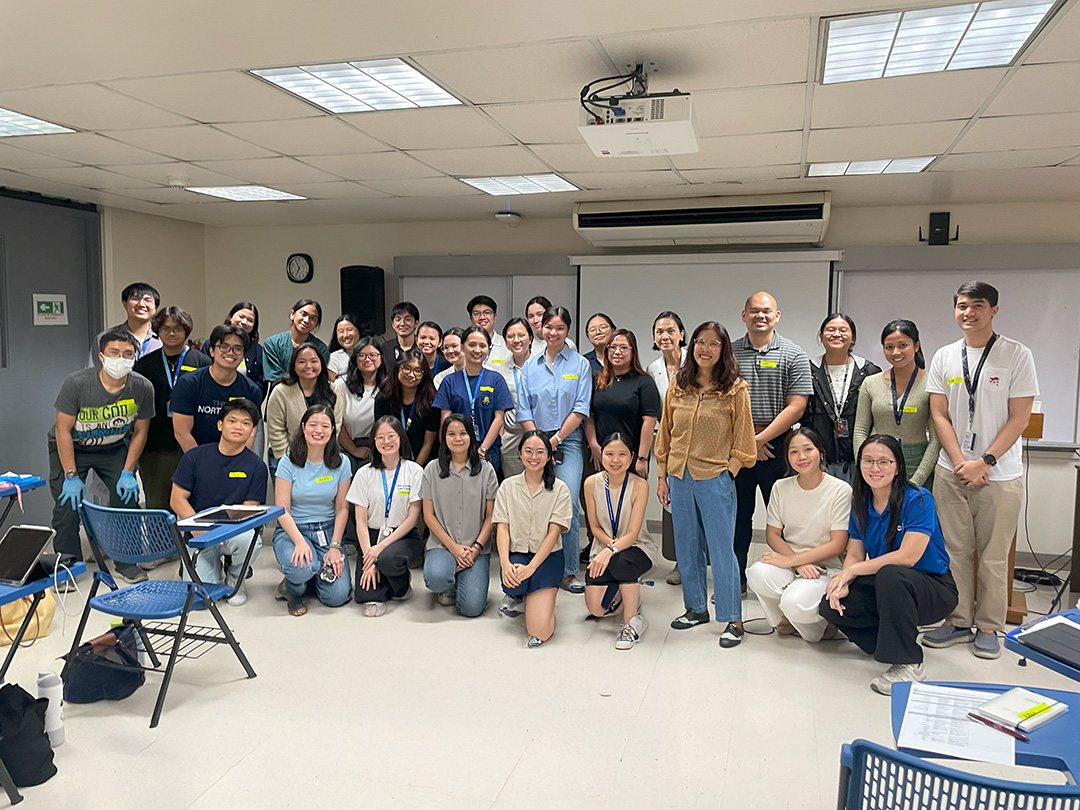
ASMPH Center for Research and Innovation hosts the Rise and Thrive program team during a three-day GEDSI Workshop
From 10-12 July 2024, the ASMPH Center for Research and Innovation (ACRI) hosted the Rise and Thrive Philippine program team during its comprehensive gender equality, disability, and social inclusion (GEDSI) hybrid workshop and stakeholder consultation. Rise and Thrive: Building Resilient Communities through Inclusive Mental Health is a program of CBM Global Disability Inclusion in Fiji and the Philippines, supported by the Australian Government through Partnerships for a Healthy Region. The program aims to develop and document, by 2028, a model that results in the improved wellbeing of people with mental health conditions or psychosocial disability through improved community support, access to services, and systems that reinforce rights, equity, and inclusion.
Through the GEDSI workshop held at the Ateneo School of Medicine and Public Health (ASMPH), the program team aimed to understand, describe, and document the priorities and concerns of diverse people with psychosocial disabilities. The program team identified barriers and enablers to the project’s envisioned inclusive community-based mental health services. These insights will contribute to the program GEDSI strategy that will prevent unintended harm, exclusion, and further marginalization of socially disadvantaged groups by promoting their rights.
(L-R) CBM Global Disability Inclusion Program Coordinator Sucelle Deacosta, CBM Australia Senior Disability Advisor Teresa Lawler, Dean of the Ateneo School of Medicine and Public Health Dr. Dodie Alfonso, ASMPH Center for Research and Innovation Director Dr. Lourdes ‘Tippy’ Tanchanco’, and ASMPH Center for Research and Innovation member Dr. Angel Dy.
The hybrid workshop was led by Teresa Lawler, Senior Disability Inclusion Advisor for CBM Australia, with the support of Sucelle Deacosta, and Kyra Ballesteros, Program Coordinator and Officer, respectively, for CBM Global Disability Inclusion. CBM Global Disability Inclusion works alongside people with disabilities in the world’s poorest places to transform lives and build inclusive communities where everyone can enjoy their human rights and achieve their full potential.
The first day of the workshop focused on introducing the GEDSI analysis, tools and process useful in conducting the analysis, and the interrelated power structures that create and maintain unequal power relations.
On the second day of the workshop, a stakeholder consultation gathered representatives from local service user organizations and civil society organizations working in the intersection of mental health, gender, youth, and disability rights inclusion. The consultations included representatives from WOWLEAP, W-DARE, #MentalHealthPH, Alliance of Filipino Families for Mental Health, the USAID RenewHealth and Ateneo de Manila University collaborative endeavor called the Rainbow Fund Project, LoveYourself Philippines, as well as Trans Deaf Advocate Disney Aguila. Representatives identified the challenges experienced by service users from vulnerable and minority groups, the resources available to these communities, and the experience of persons with disability with meeting gender roles.
Teresa Lawler leads a discussion on GEDSI Analysis.
The final workshop day was spent finalizing the next steps to formulate the Rise and Thrive GEDSI strategy, and incorporating insights gleaned from the workshop in the design of the subsequent community consultations to be conducted in Bicol and Surigao del Norte. The GEDSI strategy, a key outcome of the workshop process, is a set of actions, activities, and interventions that enable the equal participation of persons from marginalized groups.
For ACRI, insights from the workshop will be useful in advocating for GEDSI-integrated policies and practices that align with universal health care (UHC) objectives.
Participants discuss barriers to receive appropriate mental health care experienced by persons with disability.
ACRI’s initiatives advance medical and public health education, and champion universal health and well-being while bridging cultural divides for a more inclusive society. The Ateneo School of Medicine and Public Health prepares future physician-leaders to navigate cultural nuances in healthcare committed to achieving health for all.
For more information on ACRI's initiatives and upcoming events, visit www.acri.ph or send an email to research.asmph@ateneo.edu.
-

Strengthening Community Mental Health: mhGAP Training in Albay
From July 2 to 4, 2025, frontline health workers in Albay completed intensive mhGAP training under the Ka-ginhawa Project, a partnership initiative supported by the Australian Government, CBM Global Disability Inclusion, and the Balik Kalipay Center for Psychosocial Response. The three-day program equipped local providers with essential skills to assess and manage mental health conditions while strengthening referral networks across the province.
-

ACRI Conducts Nutrition Focused Physical Examination Training to Advance Autism Research
ACRI conducted Nutrition Focused Physical Examination Training on June 18, 2025, as part of an autism research project comparing children with ASD to their peers. Led by Dr. Maria Christina Kristin S. Reyes, the training equipped researchers and student assistants with hands-on skills to conduct NFPE with children aged 5-9. The peer practicum component built clinical team capacity to accurately administer assessments for the research protocol.
